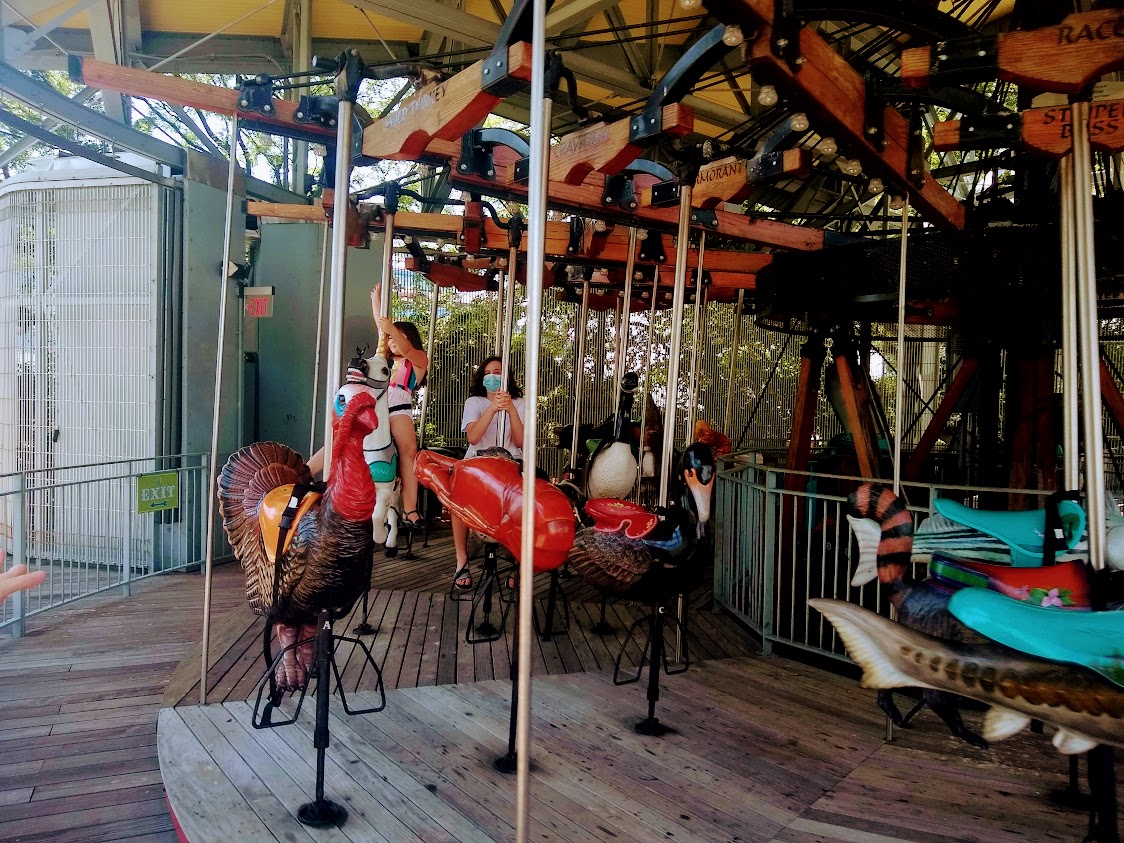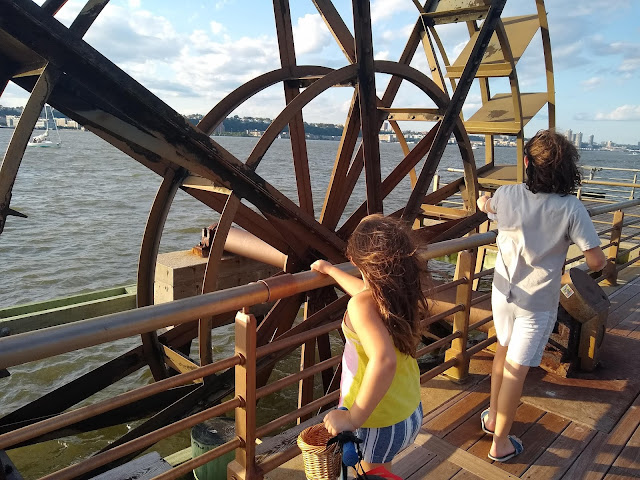Blessed be the fruit of the vine (what's left of it, in your freezer)
People are giving me skeptical looks when I mention carrying compost down to the West Village on Saturdays. I told them Alex isn't crazy about storing orange peels and rotten kale in the freezer, either. No one blames him. But I just really don't think it's that bad. I mean it's kind of like hamburgers or something. Many people scrunch up their noses at the idea of hunting an animal but would have no trouble eating that animal served in disguise with a side of fries. A lot of people I know feel bad about the vast amounts of organic materials that end up getting heaped unnecessarily into landfills, but they don't want to have to store it in their freezers, either. On Harvard's website there's a helpful little page called "Common Myths About Recycling" which debunks the theory that more trash is okay because we're not short on space to dump it.
"As organic matter (anything that was once living) breaks down in a landfill, it produces methane, a potent greenhouse gas. By reducing the amount of organic material sent to the landfill, by composting, paper recycling, etc., you are helping to reduce greenhouse gases."
In this fascinating little video "Waste Removal" by Urban Omnibus, part of a series City of Systems, Elizabeth Royte, author of Garbage Land says:
"I think we could improve our waste management system by separating organic material. So if we compost the stuff, we'll avoid generating methane and we'll also make something nice to put back on the earth and regenerate our soils."
So, just a little plug for composting (in my opinion, the easy way, i.e., no worms crawling on your countertops), and -- for those of you in New York -- an updated list of collection points from GrowNYC.
Wally came in a minute ago as I was watching the video on Waste Removal linked above. He asked what I was doing. I said I was trying to get more people to join in with composting. He saw the garbage trucks and asked to see garbage trains...so...nothing philosophical or wise from him on the subject to throw in here. But, I will say, it was the first time ever that I was working on my blog where he asked me what I was up to, and I felt good about the answer.
It's not by any means a "good" post. I'm not offering any insight or creating anything original. There's nothing here that you couldn't have found a zillion other places. It's really pretty mundane. When you peel carrots or forget to use the beautiful kale you bought last week at the farmers' market, put the scraps into a plastic container in the freezer and, when you get a chance, bring them to a farmer's market. As I wrote on GrowNYC's blog post, if you bring your kids along, it's an "educational experience" for free. (Though they can almost always be free, these days "educational experiences" are usually attached to giant price tags, accompanied by play "facilitators" in a "stimulating, learning rich environment" you couldn't possibly recreate at home (or in the backyard). Wally loves telling people about how worms turn apple peels back into dirt.
So, here's a (kind of) stay-at-home-mom just giving you a little bitta advice about the kitchen. The opposite of lofty, literary dreams that usually occupy my thoughts if not my writing. Which makes me think of a Chinese proverb I love.
"The miracle is not to fly in the air or walk on water, but to walk on the earth."
"As organic matter (anything that was once living) breaks down in a landfill, it produces methane, a potent greenhouse gas. By reducing the amount of organic material sent to the landfill, by composting, paper recycling, etc., you are helping to reduce greenhouse gases."
In this fascinating little video "Waste Removal" by Urban Omnibus, part of a series City of Systems, Elizabeth Royte, author of Garbage Land says:
"I think we could improve our waste management system by separating organic material. So if we compost the stuff, we'll avoid generating methane and we'll also make something nice to put back on the earth and regenerate our soils."
So, just a little plug for composting (in my opinion, the easy way, i.e., no worms crawling on your countertops), and -- for those of you in New York -- an updated list of collection points from GrowNYC.
Wally came in a minute ago as I was watching the video on Waste Removal linked above. He asked what I was doing. I said I was trying to get more people to join in with composting. He saw the garbage trucks and asked to see garbage trains...so...nothing philosophical or wise from him on the subject to throw in here. But, I will say, it was the first time ever that I was working on my blog where he asked me what I was up to, and I felt good about the answer.
It's not by any means a "good" post. I'm not offering any insight or creating anything original. There's nothing here that you couldn't have found a zillion other places. It's really pretty mundane. When you peel carrots or forget to use the beautiful kale you bought last week at the farmers' market, put the scraps into a plastic container in the freezer and, when you get a chance, bring them to a farmer's market. As I wrote on GrowNYC's blog post, if you bring your kids along, it's an "educational experience" for free. (Though they can almost always be free, these days "educational experiences" are usually attached to giant price tags, accompanied by play "facilitators" in a "stimulating, learning rich environment" you couldn't possibly recreate at home (or in the backyard). Wally loves telling people about how worms turn apple peels back into dirt.
So, here's a (kind of) stay-at-home-mom just giving you a little bitta advice about the kitchen. The opposite of lofty, literary dreams that usually occupy my thoughts if not my writing. Which makes me think of a Chinese proverb I love.
"The miracle is not to fly in the air or walk on water, but to walk on the earth."


Comments
Post a Comment